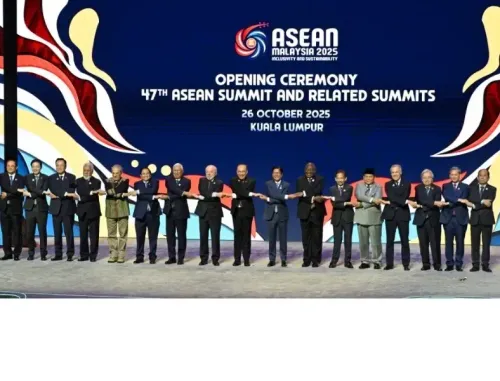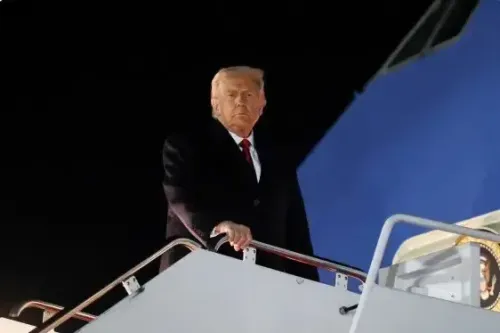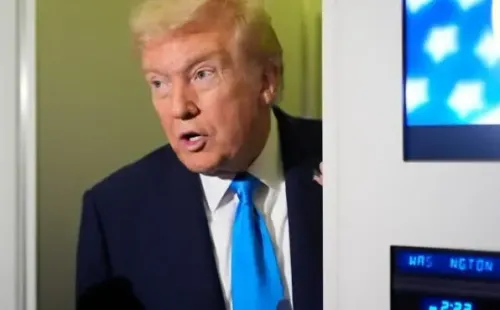Did Trump Just Impose Extra Tariffs on Canada Over an Ad Dispute?

Synopsis
Key Takeaways
- Trump has imposed an additional 10 percent tariff on Canada.
- The decision was influenced by a controversial advertisement aired by Canada.
- Canadian officials express readiness for continued dialogue.
- Trade negotiations are currently at a standstill.
- The situation adds uncertainty to US-Canada trade relations.
Washington, Oct 26 (NationPress) US President Donald Trump has imposed an extra 10 percent tariffs on Canada, accusing its northern neighbor of airing a deceptive advertisement featuring former President Ronald Reagan's remarks on tariffs.
In a post on Truth Social late Saturday, Trump stated, "Their advertisement was to be retracted IMMEDIATELY, yet they allowed it to air last night during the World Series, fully aware it was a FRAUD. Due to their significant misrepresentation of the facts and this hostile act, I am raising the tariff on Canada by an additional 10 percent on top of their existing payments."
The US President reiterated his claims that Canada is trying to meddle with the US Supreme Court's deliberations, which are currently evaluating legal challenges to his tariff policies.
"The primary goal of this FRAUD was Canada's wish that the United States' Supreme Court would come to their 'rescue' regarding tariffs they have exploited for years to harm the United States," he continued.
Following Trump's objections on Thursday, Ontario Premier Doug Ford announced a pause on airing the anti-tariff advertisement starting Monday to facilitate the resumption of trade negotiations.
Canadian Prime Minister Mark Carney emphasized on Friday that his government is prepared to engage in 'constructive discussions' with the United States after President Trump abruptly declared an end to trade negotiations.
"For months, we have highlighted the importance of distinguishing between what we can control and what we cannot," Carney remarked before departing for Malaysia for the ASEAN Summit.
"We cannot dictate the trade policy of the United States. We acknowledge that policy has shifted considerably from what it was in the 1980s, 1990s, and 2000s."
Carney pointed out that Canada's negotiators have made considerable advances in discussions with their US counterparts, particularly regarding key sectors like steel, aluminum, and energy.
"Our officials are collaborating with their American peers on thorough, constructive negotiations. We are ready to continue building on that progress once the Americans are prepared to resume talks," he added.
Carney's comments followed President Trump's announcement late Thursday that he was terminating all trade negotiations with Canada due to a recent video advertisement produced by Ontario's provincial government.
The advertisement showcased archival footage of former US President Ronald Reagan condemning tariffs, which Trump labeled as 'fake'.
"TARIFFS ARE CRUCIAL TO THE NATIONAL SECURITY AND ECONOMY OF THE U.S.A.," Trump expressed on Truth Social.
"In light of their outrageous conduct, ALL TRADE NEGOTIATIONS WITH CANADA ARE THEREFORE TERMINATED."
Kevin Hassett, Director of the White House National Economic Council, stated on Friday that the decision reflects the President's 'frustration' with Canada over trade negotiations.
"I believe the President is quite frustrated with Canada, and he has every right to be," Hassett told Fox News, adding that Canadian negotiators had been 'very challenging' to engage with and that the 'frustration has accumulated over time.'
This latest dispute introduces new uncertainty to one of the world's largest bilateral trading relationships.
Trump has already imposed a 35 percent tariff on certain Canadian exports and has often suggested that Canada should become the 51st state of the US.









